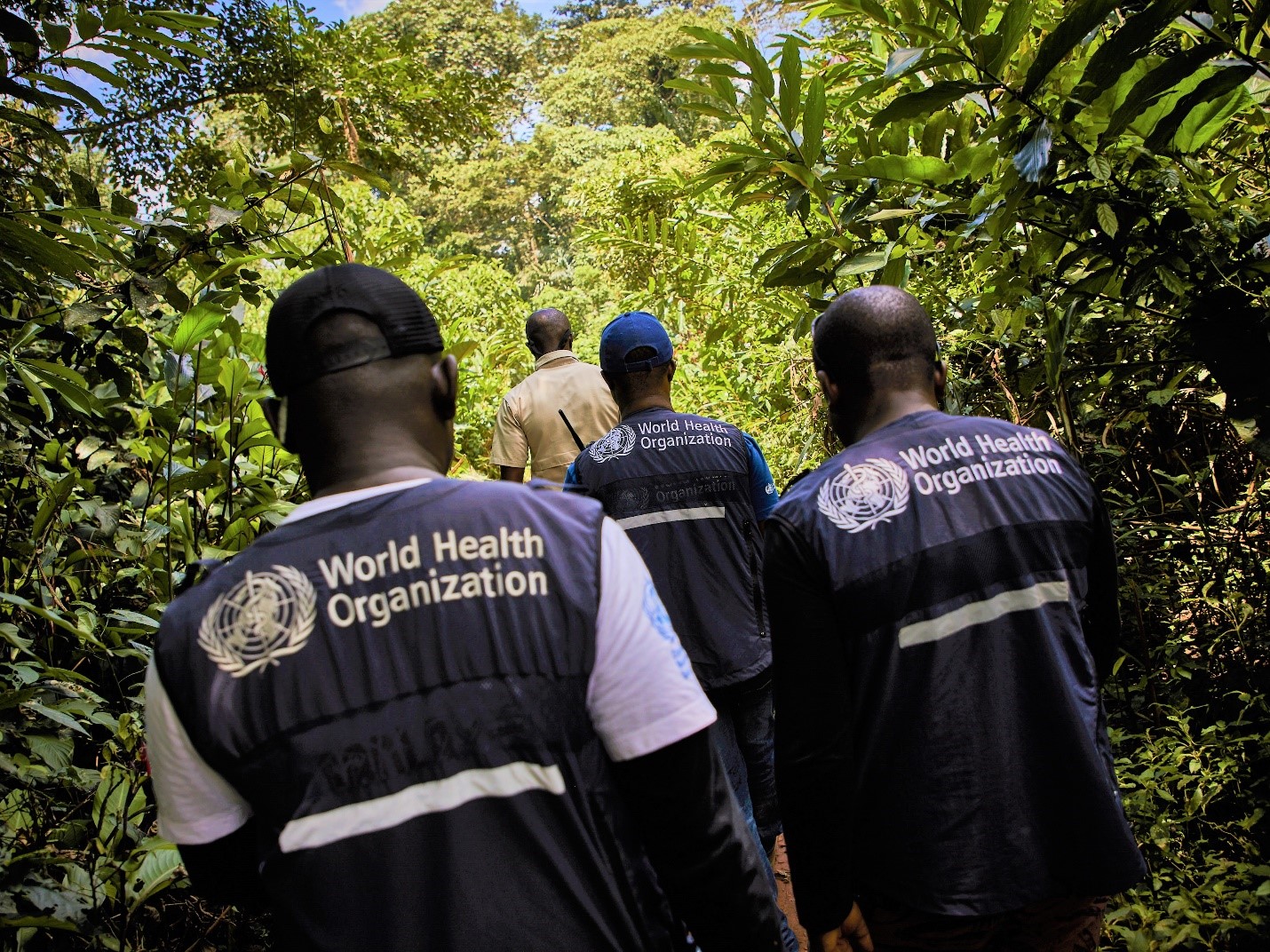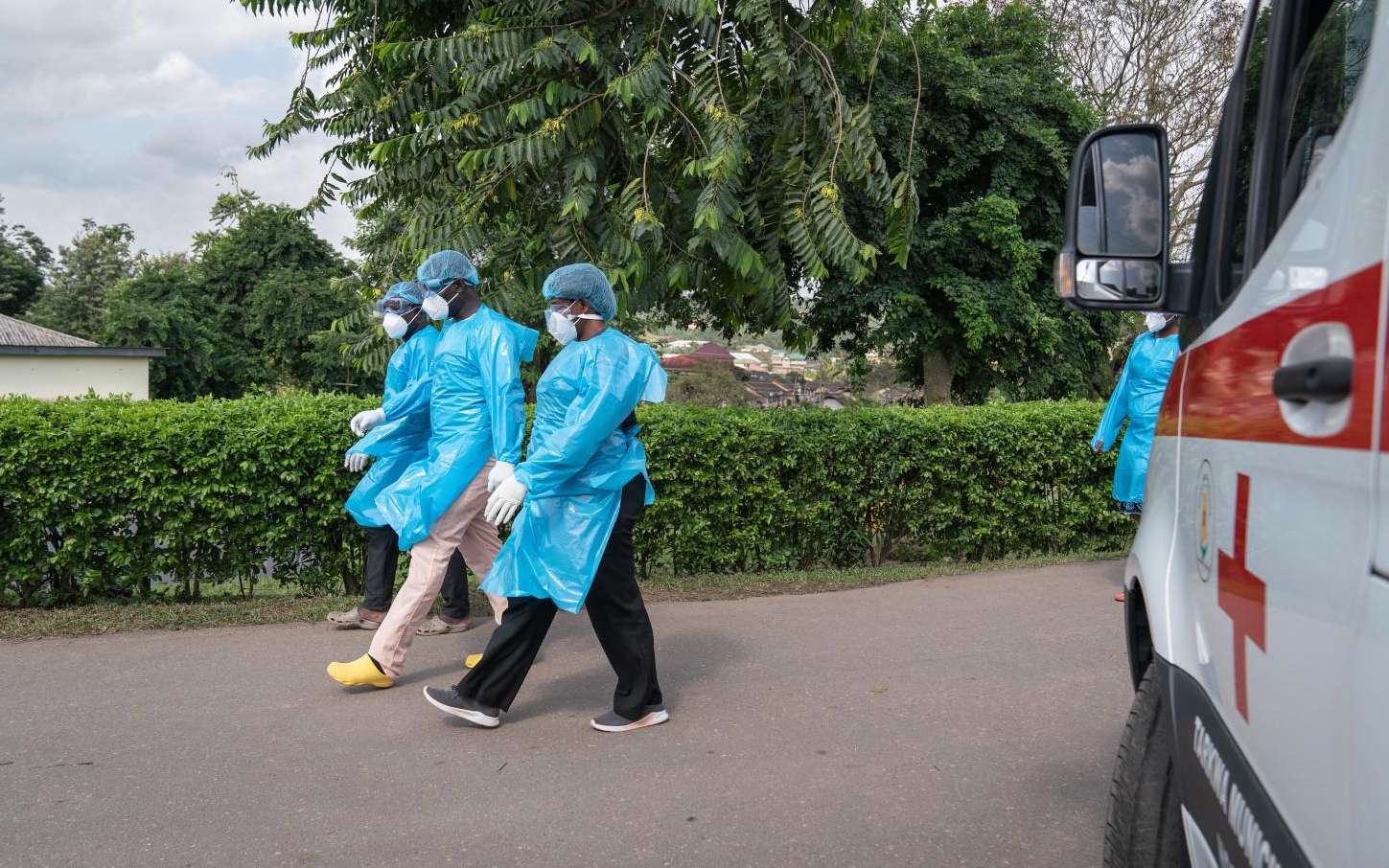Donors making a difference in 2022: good health news from across the world – World Health Organization (WHO)
 In 2022, Vanuatu eliminated trachoma, the world’s leading infectious cause of blindness. Above, a young student in Rangusuksuk, Pentecost Island. ©UNICEF/Bobby Shing
In 2022, Vanuatu eliminated trachoma, the world’s leading infectious cause of blindness. Above, a young student in Rangusuksuk, Pentecost Island. ©UNICEF/Bobby Shing
This year, WHO worked with countries and other partners to fight outbreaks and eliminate diseases, while building toward the goal of health for all.
We have selected a few news items from countries as 2022 bright spots: Trachoma infection mainly affects children in underserved, remote rural communities. Above: children in Malawi. ©WHO
Trachoma infection mainly affects children in underserved, remote rural communities. Above: children in Malawi. ©WHO
In 2022, Malawi became the first country in Southern Africa to eliminate trachoma, and Vanuatu became the first Pacific Island country to do so.
“This is a proud moment for Vanuatu,” said Minister of Health Bruno Leingkone. “This combined effort has already saved hundreds of people from lifelong blindness.”
Malawi’s success is the culmination of its multi-pronged Trachoma Action Plan, launched in 2014 and supported by donors, among them Sightsavers and the Queen Elizabeth Diamond Jubilee Trust.
The two countries join 13 others in the achievement: Cambodia, China, Iran, Lao People’s Democratic Republic, Gambia, Ghana, Mexico, Morocco, Myanmar, Nepal, Oman, Saudi Arabia and Togo. Trachoma is the second neglected tropical disease to be eliminated in the archipelago nation of 83 islands, after lymphatic filariasis in 2016. Above: students on Pentecost Island. ©UNICEF/Bobby Shing
Trachoma is the second neglected tropical disease to be eliminated in the archipelago nation of 83 islands, after lymphatic filariasis in 2016. Above: students on Pentecost Island. ©UNICEF/Bobby Shing
See more about Malawi and Vanuatu
Related news: WHO Director-General congratulates Togo on becoming the first West African country to eliminate four neglected tropical diseases A PAHO team treks to isolated communities in Venezuela to provide health services. ©PAHO
A PAHO team treks to isolated communities in Venezuela to provide health services. ©PAHO
The Pan American Health Organization (PAHO) makes three boat excursions a year deep into Venezuela’s rainforest to bring vaccinations and other health services to 22 indigenous ethnic groups.
On its September trip, the PAHO team reached 126 communities and administered thousands of vaccinations for polio, measles/rubella and COVID-19.
“Most people don’t know that inside Venezuela there are communities that are eight days’ travel away (from health services),” said Vicente Baretta, who supported PAHO in the expedition. “Organizing a journey like this presents problems that cannot be imagined from the outside, such as the need to buy new freezers for each trip, because fifteen days spent wobbling around in a boat usually renders them unfit for use again.”
Read more A boy displaced by floods in Pakistan visits a makeshift medical tent at a sports complex. ©WHO/Mobeen Ansari
A boy displaced by floods in Pakistan visits a makeshift medical tent at a sports complex. ©WHO/Mobeen Ansari
WHO’s Eastern Mediterranean region made strides this year in providing live-saving tuberculosis services for migrants in Libya, launching mobile palliative care for cancer patients in Morocco, building stronger hospital systems in Palestine, amongst other achievements.
Read more
Also see: Oman is the first country in its region to eliminate mother-to-child transmission of HIV and syphilis. During several Ebola outbreaks, health workers overcame difficult terrain to deliver care and monitor outbreaks. Above: a WHO team in Ituri Province, Democratic Republic of the Congo. ©WHO
During several Ebola outbreaks, health workers overcame difficult terrain to deliver care and monitor outbreaks. Above: a WHO team in Ituri Province, Democratic Republic of the Congo. ©WHO
Work to build up Ebola readiness and response is paying off in the Democratic Republic of the Congo.
Shortly after a single case of Ebola virus was identified on 22 August in North Kivu, health authorities rolled out a vaccination drive using the “ring” strategy: vaccinating and monitoring the patient’s contacts, and the contacts of those contacts, along with frontline health workers.
On 27 September, the outbreak was declared over. Meanwhile, neighboring Uganda is using the lessons learned by DRC to stop an outbreak of its own.
“We can and have brought Ebola to heel with robust contact tracing, detection, isolation of cases and good supportive care,” Africa Regional Director Dr Matshidiso Moeti said.
Read more WHO and partners are running a programme in DRC to monitor and support Ebola survivors like nurse Rachel Masika, above. ©WHO/Hugh Kinsella Cunningham
WHO and partners are running a programme in DRC to monitor and support Ebola survivors like nurse Rachel Masika, above. ©WHO/Hugh Kinsella Cunningham
A WHO-supported programme in the Democratic Republic of the Congo is monitoring and caring for Ebola survivors, a group that often faces stigma, unemployment and denial of health care, along with persistent mental and physical difficulties.
“Cases of relapse have been managed, and the risk of resurgence averted,” said WHO epidemiologist Dr Raymond Pallawo, programme coordinator.
Case fatality rates for Ebola virus disease have varied from 25% to 90% in past outbreaks.
Read the full Q&A with Dr Pallawo
More on surviving disease: VIDEO: In Kazakhstan, a survivor of drug-resistant tuberculosis tells her story. Health workers in Ghana during the Marburg outbreak. ©WHO
Health workers in Ghana during the Marburg outbreak. ©WHO
Health authorities in Ghana, with support from WHO and other health partners, swiftly shut down an outbreak of deadly Marburg disease which started in July 2022.
Responders stepped up testing, contract tracing, disease surveillance and clinical care, while raising public awareness to prevent virus transmission. The outbreak was declared over on 12 September.
“Marburg is a frightening disease, as it is highly infectious and lethal. There are no vaccines or antiviral treatments,” said Dr Matshidiso Moeti, WHO Regional Director for Africa. “Despite having no previous experience with the disease, Ghana’s response has been rapid and robust. Lives have been saved and people’s health protected.”
Read the full story ©PAHO/WHO Paulterra Johnson
©PAHO/WHO Paulterra Johnson
The Bahamas has maintained a careful watch to ensure that its population receives safe, effective, affordable vaccines and treatments for COVID-19.
“The regulation of medicines and vaccines is important because this is how we ensure that only safe, effective and quality-assured drugs and vaccines are imported into the country,” said Dr Gina Archer, Assistant Hospital Administrator at the Ministry of Health and Wellness. “The Caribbean Regulatory System has been very important to the Bahamas in terms of identifying which vaccines are safe to import.” The Bahamas is among the 115 countries and areas to which the UHC Partnership helps deliver WHO support and technical expertise in advancing universal health care through a primary health care approach.
Read more
Related news: Republic of Korea reaches the highest WHO level for regulation of medicines and vaccines. Singapore eliminated rubella in 2022, four years after eliminating measles.
Singapore eliminated rubella in 2022, four years after eliminating measles.
“The elimination of rubella is great news for pregnant women and children in Singapore. It shows once again the value of vaccines in protecting people from debilitating and deadly diseases,” said Dr Huong Tran, Director of Programmes for Disease Control in the WHO Western Pacific Region.
Pregnant women who contract rubella are at risk for miscarriage or stillbirth, and their developing babies are at risk for birth defects with devastating, lifelong consequences, including deafness, cataracts, heart defects and intellectual disabilities.
In the Western Pacific Region, seven countries and areas have interrupted endemic transmission of the virus that causes rubella. These include Australia, Brunei Darussalam, Hong Kong SAR (China), Macao SAR (China), New Zealand, the Republic of Korea and Singapore.
Read more Rotary International is a major, longstanding contributor to the fight to rid the world of polio. ©Rotary International
Rotary International is a major, longstanding contributor to the fight to rid the world of polio. ©Rotary International
Africa has made significant strides in the fight against polio, most notably being certified free of indigenous wild polio in August 2020. In this recent interview, Professor Tunji Funsho, chair of Rotary’s Nigeria National PolioPlus Committee, discusses the milestones and challenges in the polio fight:
Read the Q and A
Read also how frontline health workers immunized close to 500 000 children in two days in Zambia, following an outbreak in neighbouring Malawi.
Read the story
***
WHO thanks all governments, organizations and individuals who are contributing to the Organization’s work, with special appreciation for those who provide fully flexible contributions to maintain a strong, independent WHO, and our donors to the Contingency Fund for Emergencies, whose support enables WHO to respond within 24 hours to disease outbreaks and other health emergencies.
Donors and partners featured in this week’s stories include: Canada, the Caribbean Regulatory System, the International Trachoma Initiative, Oman Central Public Health Laboratories, Queen Elizabeth Diamond Jubilee Trust, Sightsavers, UNAIDS, UNICEF, United Kingdom Foreign, Commonwealth and Development Office, United Nations Population Fund, the United States of America and the UHC Partnership (funded by the European Union, the Grand Duchy of Luxembourg, Irish Aid, the Government of Japan, the French Ministry for Europe and Foreign Affairs, the United Kingdom – Foreign, Commonwealth & Development Office, Belgium, Canada and Germany).
Related
Read more stories about WHO’s impact across the world
Read more about WHO contributors
Read more on flexible funds for a strong, agile and independent WHO







